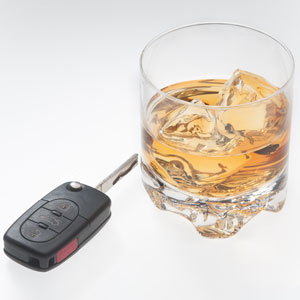
In this article, you can discover…
- What to expect legally after a first-time DWI in Texas.
- Whether or not it is possible to avoid jail time.
- How an experienced attorney can help you in light of a first-time DWI.
How Does The Court Handle First-Time DWI Offenders In Texas?
In Texas, a first-time DWI will be either a class A or a class B misdemeanor, so long as no one else was seriously hurt or died in the incident. If you have a blood alcohol level below 0.15%, your first DWI is a class B misdemeanor, which can result in up to six months in jail and a $2,000 fine if you are convicted.
If you are arrested for a DWI for the first time and your blood alcohol level is above 0.15%, this is a class A misdemeanor. A conviction could result in up to one year in jail and a fine of up to $4,000.
An attorney will work hard to help you avoid a conviction and subsequently avoid jail. Many first-time DWI convictions result in probation as opposed to jail time, but it’s important to have an experienced attorney work with you for the best possible legal results.
What Is The Legal Process Following A First-Time DWI Arrest In Texas?
Once your DWI charge is filed with the courts, the court will set a date for arraignment. In some cases, your attorney may be able to file a waiver of arraignment and simply begin the process of discovery. Your attorney will request discovery information about your case from the prosecution and will review it to begin to form a legal defense.
In the meantime, the court may set pretrial settings, docket calls, and trial settings. At a pretrial setting, you and your attorney will bring up any issues related to your case, such as filing a motion to suppress evidence. At the docket calls, your attorney will announce if you are ready for trial. The final step is the trial itself.
If This Is My First DWI Offense, Can I Avoid Jail Time?
Most people facing a first DWI offense will not go to jail if they are convicted. For the most part, people are placed on probation, especially if they have no prior criminal history. However, it is important to avoid being convicted for a DWI in the first place, and a skilled attorney will work hard during your trial to help you avoid a conviction.
Will A First-Time DWI Charge Impact My Employment In Texas?
A DWI conviction can sometimes cost a person their job. This is especially true if your job involves operating heavy machinery or handling sensitive information. It is up to your employer if they choose to let you go in light of a conviction, making it important to have an experienced attorney fight hard to keep a conviction off of your record.
How Does A First-Time DWI Charge Affect My Driving Record?
When you are first arrested for a DWI, you may be served with a notice of suspension of your driver’s license. This is especially likely if you refuse to submit a blood or breath sample. If this occurs, you will have 15 days to challenge this suspension.
If you voluntarily submit a blood sample and your blood alcohol content is above 0.08%, the Texas Department of Public Safety will mail you a notice of suspension, and you will have 20 days from the date on this letter to contest your license suspension. If you refuse a blood test and do not contest this suspension, you will lose your driving privileges for at least 180 days.
How We Approach Cases Like Yours
When you are arrested for a DWI, reach out to us immediately. We will help you contest the suspension of your driver’s license within the 15 to 20-day limit and seek to obtain unredacted versions of the police reports for your arrest. We will begin analyzing the reason for the initial stop and why the arresting officer believed you were driving while intoxicated.
Based upon this information, we will begin to formulate a defense for your case, working to help you avoid a DWI conviction if at all possible. If the police did not have a valid reason to detain you, we will file a motion to suppress and have associated evidence thrown out of your case.
If the state may be able to prove that you were indeed driving while intoxicated, we can work to convince the prosecutor that a conviction against you would not serve justice. We have had a great deal of success helping clients with a first-time DWI arrest avoid conviction, greatly impacting their futures, careers, and life opportunities for the better.
Still Have Questions? Ready To Get Started?
For more information on First-Time DWI Arrests In Texas, an initial consultation is your next best step. Get the information and legal answers you are seeking by calling (361) 200-0013 today.
